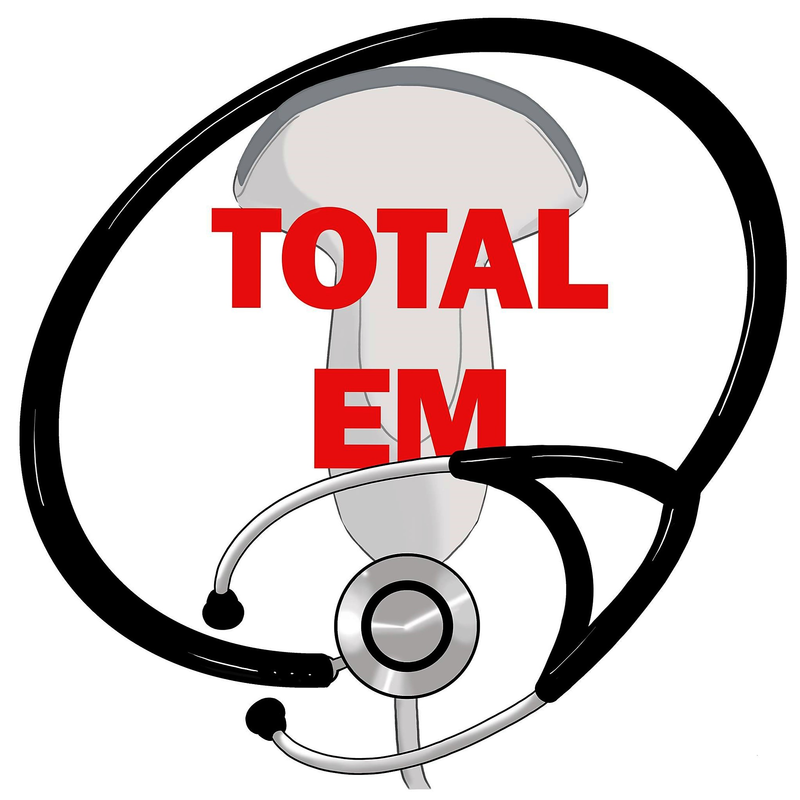|
We are having a special episode to add to what we did with Salim Rezaie on REBEL Cast recently as a guest. While we were there, we talked a lot about the TOAST trial and reviewed our own clinical use of dexamethasone. It is definitely worth your time to visit his page and listen to that podcast. However, we wanted to add our own little supplement to the #FOAMed world by adding a detailed analysis of the paper in true BEEM fashion. Please check all of this out for a more thorough understanding of the topic.
Title:
Effect of Oral Dexamethasone Without Immediate Antibiotics vs Placebo on Acute Sore Throat in Adults (the TOAST trial) Case: A 24 y/o female with no past significant medical history and who is not pregnant comes to your department complaining of a sore throat. A resident sees the patient and says she reports a subjective fever without cough at home and that over-the-counter medications have not controlled her pain. Her rapid strep test is negative and you have a lower suspicion for bacterial infection thinking it is most likely viral at this time. The patient is hoping to get something in addition to what she has at home to control her symptoms. Your resident asks about giving dexamethasone without antibiotics. Background: Corticosteroids inhibit transcription of pro-inflammatory mediators in airway endothelial cells responsible for pharyngeal inflammation and symptoms of pain. They have been used in other upper respiratory tract infections such as acute sinusitis and croup. In adults, previous studies with dexamethasone are in combination with antibiotics but studies of children have included dexamethasone without antibiotics. This study is unique as it is evaluating the benefits of oral corticosteroids for acute sore throat in primary care in the absence of antibiotics. Clinical Question: Does a single dose of dexamethasone in the absence of antibiotics provide symptom relief for acute sore throat in adults presenting for primary care? Reference:
Author’s Conclusions: Among adults presenting to primary care with acute sore throat, a single dose of oral dexamethasone compared with placebo did not increase the proportion of patients with resolution of symptoms at 24 hours. However, there was a significant difference at 48 hours. Quality Checklist for Randomized Clinical Trials:
Key Results: A total 576 patients were randomized for which 565 eligible randomized patients were assessed with 288 receiving dexamethasone and 277 receiving placebo. At 24 hours, 65 participants (22.6%) receiving dexamethasone and 49 (17.7%) receiving placebo reported complete resolution but this was not statistically significant (P=0.14). However, at 48 hours 102 participants (35.4%) in the dexamethasone group and 75 (27.1%) in the placebo group experienced complete resolution of symptoms (P=0.03). Key Points of Debate:
Comparing Conclusions: We generally agree that for adults presenting to primary care with acute sore throat that a single dose of oral dexamethasone may not increase the rate of resolution compared to a placebo but that it appears to be better at 48 hours. Our Bottom Line: We agree that corticosteroids may play a beneficial role in sore throat just like in other upper respiratory infections but that this effect is more likely to be beneficial in those with more severe symptoms. Case Resolution: You discuss with both the patient and the resident that corticosteroids could be beneficial in helping improve symptoms and leading to resolution but that there is some potentially conflicting data. After shared decision making of the risks, benefits, and potential complications the patient agrees to try a single dose of dexamethasone while the throat culture is pending. On follow-up with her PCP two days later her culture is negative and she has resolution of her sore throat. Clinical Application: At this time, corticosteroids such as dexamethasone do appear to be beneficial but are not without risks and should carefully be used in appropriate patients with avoidance in groups when possible such as those with diabetes mellitus. What do I tell my patient? A single dose of dexamethasone is commonly used in emergency departments for a variety of upper respiratory conditions such as acute sinusitis and croup. There is growing evidence of benefit in sore throat and given the severity of your symptoms without relief of home measures, this could potentially be beneficial for you. Corticosteroids are not without risk though and should be avoided when possible. Conclusion: Thank you for listening to the podcast and reading the blog. Please let us know what you think by giving us feedback here in the comments section or contacting us on Twitter or Facebook. Remember to look us up on Libsyn and on iTunes. If you have any questions you can also comment below, email at [email protected], or send a message from the page. We hope to talk to everyone again soon. Until next time, continue to provide total care everywhere.
3 Comments
4/6/2021 07:04:16 am
Thanks for Sharing Such a Detailed Article About Emergency Professionals Keep Up the Good Work.
Reply
Leave a Reply. |
Libsyn and iTunesWe are now on Libsyn and iTunes for your listening pleasure! Archives
August 2022
Categories |
||||||


 RSS Feed
RSS Feed